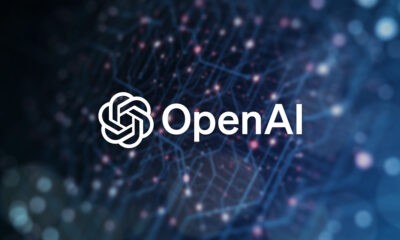News
ChatGPT Offers API Access & Developers Are Taking Advantage
Businesses can now develop paid services using the popular AI language model, meaning chatbots will soon be appearing everywhere.

On March 1, OpenAI, the San Francisco artificial intelligence company, released API access to their insanely popular ChatGPT tool, along with Whisper, a speech recognition service.
Since the release of ChatGPT, developers have been using the platform to build all manner of custom tools, including apps like QuickVid AI, which automatically generates ideas for YouTube videos. The app’s creator, Daniel Habib, explained that until now, it was impossible to monetize software featuring chatbot AI.
“All of these unofficial tools that were just toys, essentially, that would live in your own personal sandbox can now actually go out to tons of users,” Habib says.
OpenAI’s API release could mark the start of a new AI gold rush. What was previously a series of industrious hobbyists creating apps in a licensing gray area could soon become an entirely new industry.
“What this release means for companies is that adding AI capabilities to applications is much more accessible and affordable,” notes Hassan El Mghari, who manages TwitterBio, a ChatGPT service that generates Twitter profile text for users.
Also Read: Areeba To Bring Biometric Payment Authentication To MENA
OpenAI has also updated its data retention policy and will now only hold user data for 30 days, promising it won’t use user-generated text inputs to train its AI models. This policy change means that companies will be in better control of their data rather than needing to trust a third party to manage where it goes.
In addition to better data-retention policies, API access to ChatGPT is now 10 times cheaper than OpenAI’s lower-powered GPT3 API, which launched in June 2020. The falling price of many of these large language models means there will likely be a plethora of AI chatbots to choose from in the near future.
News
Mamo Completes $3.4M Funding Round To Enhance Fintech Services
The startup will use the influx of cash to expand into Saudi Arabia and across the wider GCC while improving its product offering.

UAE-based fintech Mamo has announced the completion of a $3.4 million funding round that will help the startup extend its market presence and improve its product offering. Investors included 4DX Ventures, the Dubai Future District Fund and Cyfr Capital.
Mamo’s platform offers “payment collection, corporate cards and expense management” to help small and medium-sized businesses consolidate and streamline their operations. With the latest influx of capital, Mamo will further develop its comprehensive suite of services and begin testing its product lines in Saudi Arabia, further extending its footprint across the GCC.
Imad Gharazeddine, co-founder and CEO of Mamo, stated: “We’ve been in the market for a while now and are incredibly proud of what our team has achieved. The holistic and expansive nature of our product offering has helped us continue to grow sustainably. This additional funding will allow us to reach our medium-term goals even faster. The support from new and existing investors is a testament to our strong expertise and the ability to deliver on our customer promise”.
Daniel Marlo, General Partner of lead investor 4DX Ventures, added: “We have immense trust in Imad’s vision, leadership and Mamo’s innovative approach to provide a user-friendly and comprehensive financial solution for SMEs that makes financial management more accessible and efficient. We are proud to partner with them and support their mission”.
Also Read: A Guide To Digital Payment Methods In The Middle East
Amer Fatayer, Managing Director of Dubai Future District Fund’s investment team, also commented: “Mamo’s localized product lines serve as an infrastructure for SME payments and spend management in UAE, a segment that is underserved by the country’s current banking infrastructure. The team has taken a product-first approach to consolidating SMEs’ financial journeys and building a fintech solution deeply embedded in a business’s core operations”.
To date, Mamo has raised around $13 million in investment funding and now boasts a team of 30 people. The company’s intuitive financial services platform has allowed over 1,000 businesses to consolidate their financial operations and significantly reduce payment fees.
-

 News4 weeks ago
News4 weeks agoAmazon Prime Day 2024: Get Ready For 6 Days Of Amazing Deals
-

 News4 weeks ago
News4 weeks agoSamsung Unpacked 2024: What To Expect From The July 10 Event
-

 News4 weeks ago
News4 weeks agoCoursera Report Shows Surge In UAE Interest In AI Upskilling
-

 News4 weeks ago
News4 weeks agoMeet Dubai’s Groundbreaking Smart Robot Delivery Assistant














